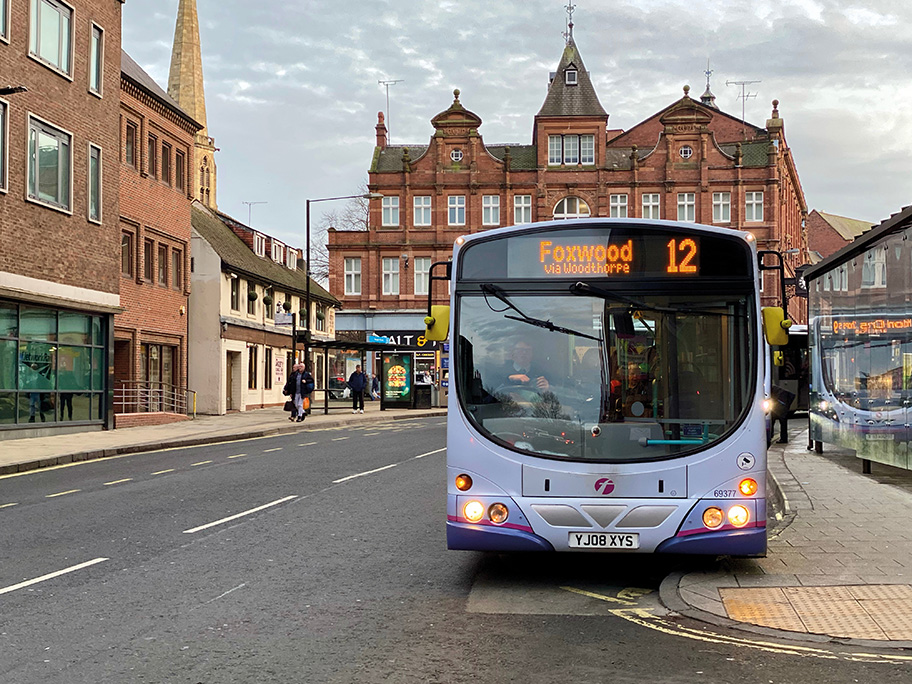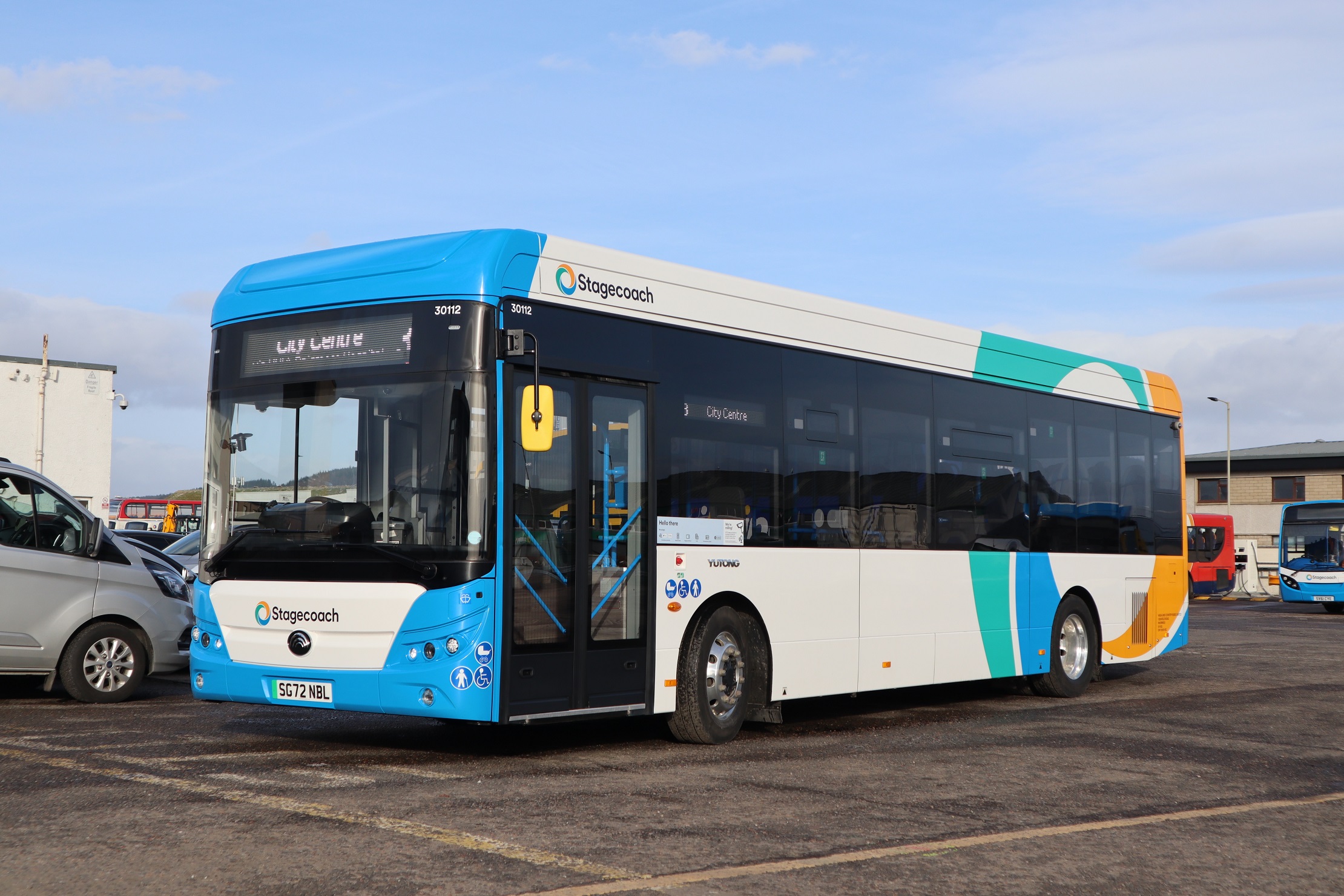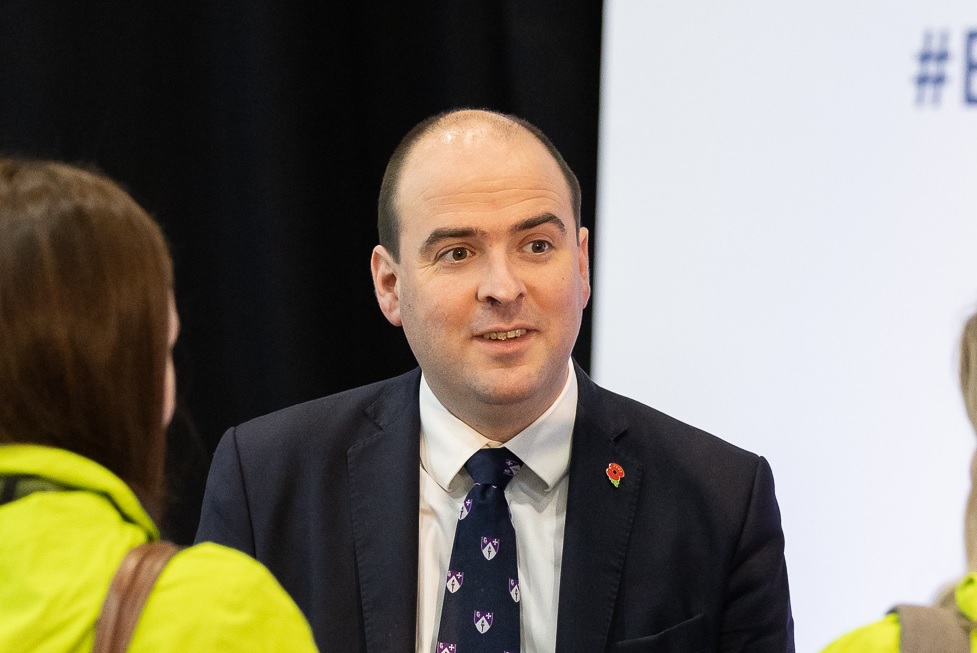Recent survey results suggest a lot more could be needed to get people to reduce car use, our politics expert considers
Research published before Easter by Transport Focus showed more people are travelling by bus thanks to the government’s £2 bus fare cap. That’s good news, of course, but it’s not entirely surprising. You would expect people to take advantage of this. But I wonder if the news is as encouraging as ministers, and the industry, would want.
The research tells us that one in ten people are using the bus more as a result of the fare cap. That does not strike me as a major increase in bus patronage since it clearly means that the vast majority of people – nine out of ten, if my maths serves me correctly – have not used the bus as a result of the fare cap.
To be fair, 49% of people surveyed said they “might” take advantage of the fare cap and use the bus instead of the car. That’s a more impressive figure even if it’s qualified by “might”.
So, at the risk of being a bottle-half-empty pessimist, I’m afraid I can’t get too excited about the outcome of the survey, given that only one in ten people are taking advantage of the fare cap. And of course, it is time-limited and ends at the end of June unless ministers get Treasury agreement to its extension.
When the fare cap was first announced last year I did wonder how ministers were going to handle the negative reaction when the scheme was brought to an end, especially if take-up was high. Taking away a benefit like this could be awkward and I wondered if ministers had really thought this through.
But if only one in ten people are actually taking advantage of it and if, as we are told, awareness of the fare cap is only at 56%, the political downside of termination seems pretty small.
The reality is that, once people get used to their cars, it’s hard to get them to shake the habit. There will have to be much more intervention — more stick and less carrot — to get people to leave their cars in their driveways and the £2 fare cap on its own seems to be having only a marginal impact.
Further, as we have seen by the reaction to the Mayor of London’s plans to extend the London Ultra Low Emission Zone, people like their cars. I’m not suggesting the £2 fare cap wasn’t worth doing. But let’s keep its success in perspective. Ministers are going to have to accept that, in order to really achieve modal shift to the bus, far stronger incentives are going to be needed.
TSC’s report
Meanwhile, the Transport Select Committee (TSC) has published a report on its inquiry into the National Bus Strategy. It’s not a happy read for the Department for Transport (DfT), but then I don’t imagine officials or ministers expected the Committee’s report to be anything other than critical.
It’s not just that the Committee has highlighted the woeful lack of funding to deliver the aspirations of the strategy and of the Bus Service Improvement Plans that transport authorities were required to prepare – and remember that ministers encouraged authorities to be ambitions in drawing up these plans.
The Committee has also reminded us that the DfT has actually not done things that it committed to in the strategy.
The DfT was going to issue new guidance on what constitutes socially and economically necessary bus services and to consider introducing a statutory requirement on local authorities to provide them. It has yet to do so. The DfT was going to look again at the ban on authorities setting up new municipal bus companies. It has yet to do so.
And the DfT has yet to announce a date for stopping the sale of diesel buses despite issuing two consultation papers on this, the first one back in March 2021, a day after the bus strategy was published.
So, while the Committee’s report and criticisms of the DfT come as no surprise — least of all to the DfT itself, I have no doubt — it still makes for an uncomfortable read. And we still don’t know whether further financial support will be provided beyond the end of June, so a cloud of uncertainty continues to hang over the industry.
This simply can’t go on. We are surely at the point when ministers have to decide one way or the other whether to fund the industry on a long-term basis, or whether they are willing to see services cut back on a potentially significant scale. Political logic suggests there is really only one option, but whether the Treasury sees it that way can’t be guaranteed.
Labour gains?
Campaigning for the local elections on 4 May has started. I was going to say “in earnest” but I’m not sure many people have really noticed! The polls suggest that the Conservatives look set to lose as many as 1,000 councillors.
This will be on top of a bad set of results when the same council seats were up for election back in 2019, when the Conservatives also lost around 1,000 councillors. If the Conservatives do get crushed in these elections, it will be interesting to see if there are any immediate policy initiatives to try to shore up the Conservative vote in time for the general election in 2024.
My suspicion is that we won’t, and that Rishi Sunak is taking a gamble that with 18 months until the election — now expected in autumn 2024 — he has time to turn things around, see inflation back down to the 2-3% mark and the cost of living crisis over, the economy growing nicely again and a general air of confidence permeating the electorate.
It’s a big gamble and, with support for the SNP dropping sharply, a Labour revival north of the border looks ever more likely, and that could be a deciding factor in whether Sir Keir Starmer is our next Prime Minister.



























